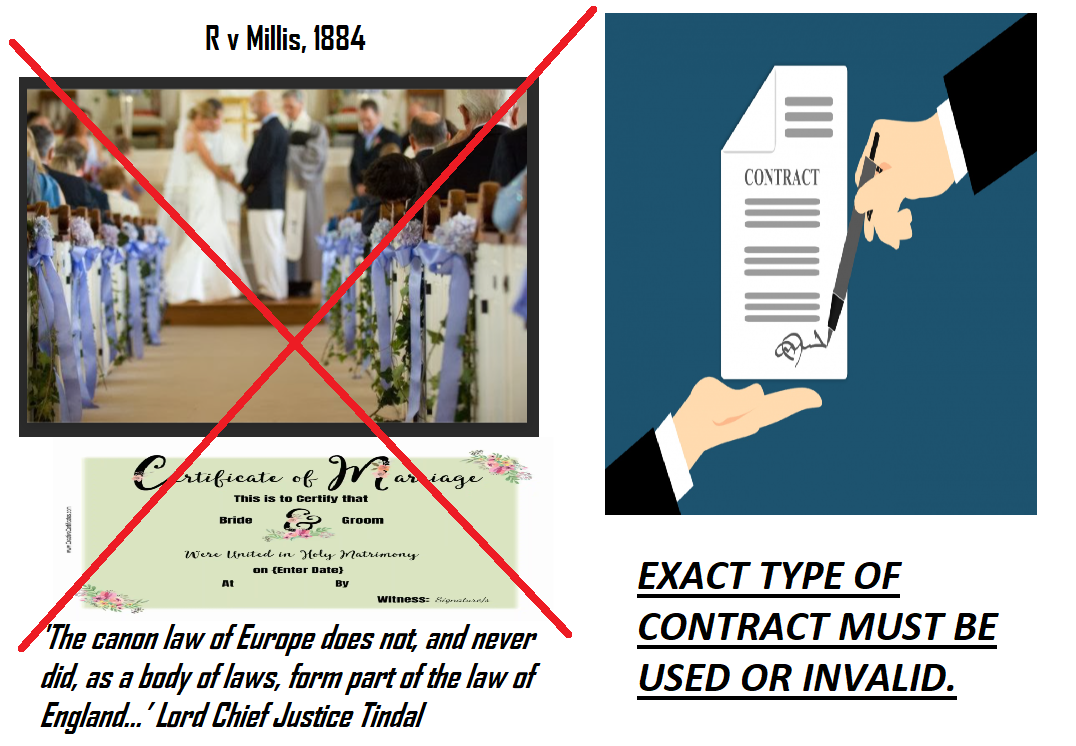R v Millis (1844) 8 English Reports 641
Citation:R v Millis (1844) 8 English Reports 641
Rule of thumb:What happens if the right form & style for a contract is not used? No contract will be formed - where there is a form & style of contract prescribed by statute it must be used or else no contract is formed.
The facts of this case were that a marriage ceremony took place. However, this ceremony had not taken place in the required form and with the required documentation necessary to be considered a marriage. The administration in the UK therefore refused to recognise Millis' marriage meaning that he could not obtain the benefits required from being married.
Parties argued:
Millis sought to challenge this decision. Millis argued that he had gone through a ceremony recognised with his religion. The Crown argued that this was not in the prescribed form required by law meaning that it was not a valid marriage.
Judgment:
The Court upheld the arguments of the crown. Where there is legislation requiring a contract to be agreed in a certain form then no real rights are obtained unless the prescribed statutory form is followed. Millis marriage was not recognised as being a valid.

Ratio-decidendi:
'But that the canon law of Europe does not, and never did, as a body of laws, form part of the law of England, has been long settled and established law. Lord Hale defines the extent to which it is limited very accurately. "The rule," he says, "by which they proceed is the canon law, but not in its full latitude, and only so far as it stands uncorrected either by contrary Acts of Parliament or the common law and custom of England; for there are divers canons made in ancient times, and decretals of the Popes, that never were admitted here in England "(Hale's Hist of Common Law, c. 2). Indeed the authorities are so numerous, and at the same time so express, that it is not by the Roman canon law that our Judges in the Spiritual Courts [10-Clark & Finnelly-681] decide questions47 within their jurisdiction', Lord Chief Justice Tindal
'The canon law of Europe does not, and never did, as a body of laws, form part of the law of England...’ Lord Chief Justice Tindal
Warning: This is not professional legal advice. This is not professional legal education advice. Please obtain professional guidance before embarking on any legal course of action. This is just an interpretation of a Judgment by persons of legal insight & varying levels of legal specialism, experience & expertise. Please read the Judgment yourself and form your own interpretation of it with professional assistance.

